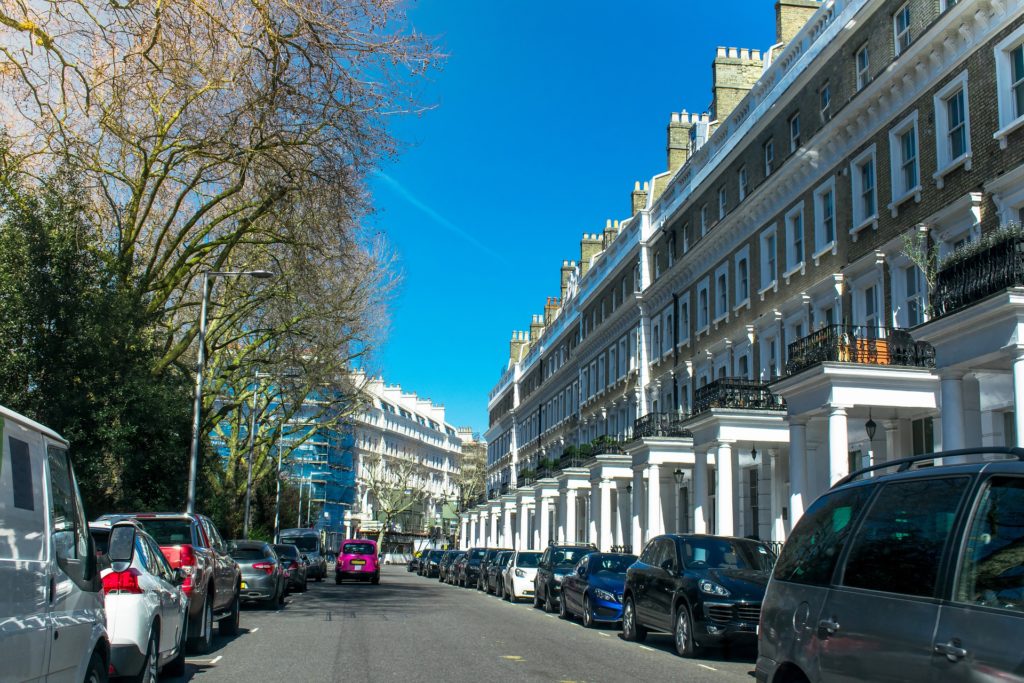Larger HMO properties can be ideal candidates for a number of uses, mainly conversion back into a larger residential property. They can also be converted into flats or other types of property that you can rent out, whilst removing the actual multiple occupation definition.
Whilst these types of properties can be lucrative and profitable to invest in and rent out to tenants, they can also be quite complicated and hard work to manage, hence why many of our clients decide to buy these types of properties and change them back into residential use.
With the property boom that’s been occurring across the UK, investors have been making hay whilst the sun has been shining. This has meant looking at some alternative options to the standard house purchase pathway, including converting this type of property as well as other former use commercial properties such as hotels, B&B’s and guesthouses.
It’s not always a straightforward process, and there are some legal things to consider, but we’ve written a short guide here to talk you through the basics on converting a HMO back to residential.
Do I need planning permission to convert an HMO to single dwelling?
 You may do, yes, so first and foremost the first thing we’d advise you to do is to speak to your local council’s planning department about whether they would want you to apply for planning permission to complete the conversion of the property.
You may do, yes, so first and foremost the first thing we’d advise you to do is to speak to your local council’s planning department about whether they would want you to apply for planning permission to complete the conversion of the property.
Whether you require planning permission will depend on what work needs to be carried out and what sort of changes you’re looking to make to the property. If the works are completely internal and won’t change the appearance of the property, then you might not need planning permission to carry out this building work.
Realistically, if the property is unoccupied you don’t require a licence, and technically planning permission would only apply in certain circumstances, however, as we’ve mentioned, the best bet is to contact your local authority first and get their advice.
What is an HMO license?
This type of licence is required if your property meets the requirement of a multiple occupation property, which would be when your property “is occupied by 5 or more people forming 2 or more households, regardless of the number of floors in the property”.
These licences are obtained from the local authority council, and you’re required to go on a training course to before you’ll be granted one, these are run in coordination with the Residential Landlords Association and usually last for 5 years, and you’ll need to nominate an individual, agent or company to be the licence holder.
The cost of obtaining this licence will vary depending on who you obtain it from, but you should expect to pay somewhere between £350 and £750 for it.
If you operate a multiple occupation property without this licence you could be fined up to £20,000 and they’re not transferrable.
Do I need to have an HMO license?
If your property falls under the above definition then yes, you do, otherwise you’re liable for a fine of up to £20,000. Don’t forget, if your property is occupied by 5 or more people from more than 1 family, then that property is considered multiple occupation and requires a licence.
Remember, they’re not transferrable, so if you purchase a property of multiple occupation with existing tenants, you’ll need to apply for a new licence for yourself or via an agent or company.
You can get these licences from your local authority.
If you purchase a former multiple occupation property that no longer has multiple occupants, then you won’t need one.
How to remove an HMO status?
If you don’t want to use the property for multiple occupation anymore, then you need to give the tenants of the property legal notice to vacate the property once their respective tenancy agreements have expired. If, for example, they’ve just started a new 12 month tenancy agreement, then you may need to wait for that to expire before you can then legally ask them to vacate.
Once the property is vacant there’s no need, unless you require planning permission, to do anything else as the licence will simply expire by itself and there’s no need to renew it as long as your property is now solely for residential use.
With that in mind, you don’t need to physically contact anybody or do anything specific to remove the status as a property of multiple occupation, you simply don’t renew the licence. You can, of course, contact the council and let them know if you feel as though that may be useful.
C3 and C4, what’s the difference?
The Town and County Planning (Use Classes) 1987 Order didn’t originally include a specific Use Class for HMOs, regardless of the number of tenants. This was amended in 2010 to include a standalone Use Class for HMOs.
There are now two separate property classes for properties with more than five people living in them. A C3 property is considered a ‘dwelling house’, and under the planning order, is defined as a property that “allows for groups of people (up to six) living together as a single household. This allows for those groupings that do not fall within the C4 HMO definition, but which fell within the previous C3 use class, to be provided for i.e. a small religious community may fall into this section as could a homeowner who is living with a lodger.”
This is a specialist type of classification that is given by the local authority, and at their discretion. Broadly speaking, it’s for a large group of people that live together in the same house, not as part of a family, but who could be considered a household. For example, a homeowner and lodger could fall into this category, or 4 foreign exchange students living together, but this classification isn’t broadly used.
A C4 property classification is used, by definition, for “small shared houses occupied by between three and six unrelated individuals, as their only or main residence, who share basic amenities such as a kitchen or bathroom”
So, these are for smaller, but the most typical, type of HMO.
I want to change an HMO to a family home
This is the most typical change of use that we come across and, technically speaking, it should be fairly easy to achieve, however, there are some things that need to be considered and that can get in the way.
If you’re buying an HMO that already has tenants in the property then you’ll need to, firstly, try and find out how long they have left on their tenancy agreements so that you know how long it may take until the property will become totally vacant. You need to follow the legal route to asking the tenants to vacate, so it’s worth consulting with a solicitor or expert if you’re going to need to do this.
Secondly, and, again, if you’ve already got active tenants, the HMO licence isn’t transferrable, so you’ll need to apply for a licence for yourself whilst you wait for the property to become fully vacant.
If the property is already vacant, then you won’t need to apply for a new licence, you can just let the old one expire.
Now, if you’re needing to undertake building work to get it to the standard you’re looking for, for your family home, you’ll need to consider the possibility of planning requirements. Again, if the works are fairly light, for example removing fire doors or a bathroom, then you probably won’t need it, but if you’re taking out more substantial work you may do, and our advice is to always check with the local planning department.
How to change the use from HMO to flats?
In terms of licencing, there’s little you’ll need to do if you’re converting an HMO into flats because, presumably, it would be vacant at that point to allow you to do the renovation works and change the architecture. An HMO definition only applies when people are within a single property or dwelling.
If your project is converting them into completely separate dwellings then chances are, you’ll likely need to acquire planning permission, however, so this is likely to be your biggest challenge, so this is where you should focus your energy.
Summary
Converting an HMO can often be very straight forward but the main things you’ll need to consider are:
- Does it have existing tenants, and how long do their agreements last?
- Will you require a licence whilst waiting for them to vacate?
- Will you need planning permission in the course of your renovation?
These are your three main challenges, and whilst it often adheres to the laws of common sense, we would always advise you to speak to a solicitor, the planning department at the local authority, and, where necessary financial experts.

